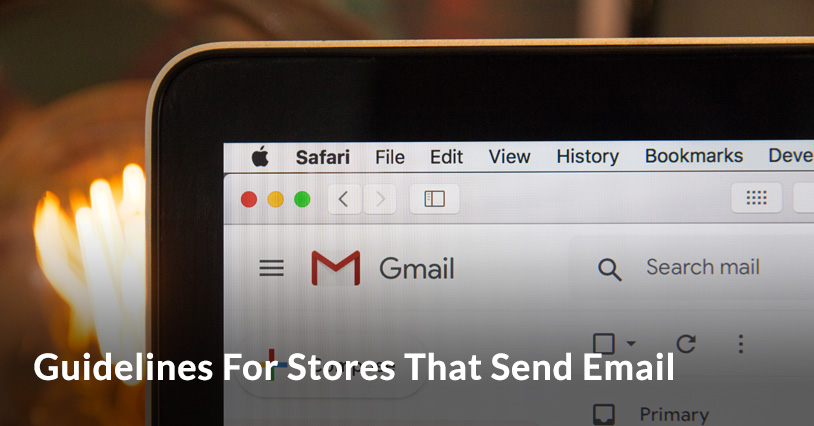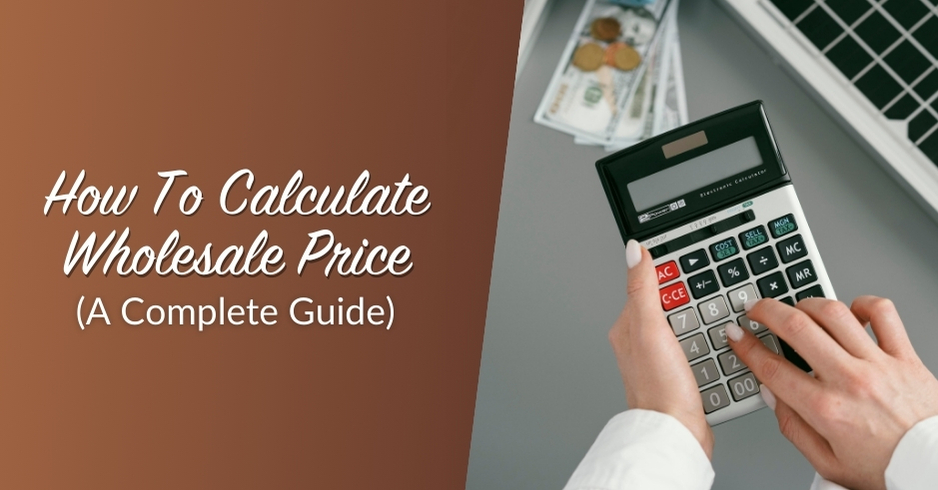
“Email is dead.” … Pfffffft! … What a load of crap.
Of all the options for non-verbal communication, email is still perhaps the most unique and useful tool out there. It’s used more today by stores than at any time in history and for a variety of reasons.
- Order related emails (think invoices, shipping notifications, etc)
- Deal notifications
- Upsells and cross-sells
- Sending educational information
- Regular newsletters
- Cold prospecting
- Pre-purchase automatic sequences
- Post-purchase automatic sequences
- Abandoned cart recovery emails
- Account related emails (think password reset emails, etc)
… And a whole lot more.
This guide exists to helps you, the store owner, navigate the world of sending email. I want to help you understand some of the do’s and don’ts, give you some information and best practices and, of course, some guidelines that you can come back and refer to.
You might have found this post seeking advice about what kind of email communications you and your store should be doing.
Or you might have found it after being scared out of your whits about privacy concerns (Omg! GDPR! Run for the hills!)
Whatever sent you here, read on for some thoughtful tips and guidelines surrounding email communication for stores.
Three Different Types Of Emails
The amount of email a single store can generate is impressive.
And yes, there are a few things you absolutely do need to do as a responsible store owner – things like unsubscribing options, complying with anti-spam laws, etc – and we’ll get to that in a moment.
But I first want to introduce you to the three different “types” of emails because that will give us context.
- Cold Emails
- Marketing Emails
- Transactional Emails
Some emails might cross the boundaries of one or more of the types, but the “primary purpose” of every email you send from your store or that your store generates will be categorized under one of these three types.
It’s important to know about each one and understand what you should and shouldn’t be doing under each.
1. Cold Emails
Cold emails are emails that you send with a commercial intent to someone that doesn’t have an existing relationship with you.
What constitutes a cold email?
Cold emails can be things like:
- Prospecting emails for customers (especially important in wholesale customer context)
- Sourcing new suppliers
- Seeking guest posts from industry blogs
- Basically, any time you are reaching out to someone or some company without having explicit permission beforehand
Guidelines: Do’s & don’ts for cold emails
There’s various laws and regulations and you should really check your local anti-spam laws for definitive advice.
Here’s some guidelines for you though:
- Make it easy for them to stop, this can be as simple as a note to reply and let you know
- In some countries it is legal to cold email companies, but not individuals (check your local laws for more)
- Make the intent of the email clear
- Don’t make it boring! People get enough cold email these days. You don’t want yours to be another “oh here’s Bob with his offer for reliable web development services… *delete*”
When to use cold emails
Cold emails are used a lot and there are even tools these days like Woodpecker, Bluetick, and MailShake that help you automate the sending and collation of emails (while still using your personal email account to do the actual sending).
Cold email is especially effective for outreach.
This can be outreach to get in touch with:
- Potential customers (especially big ones)
- Blog owners (for guest posts, link requests, etc)
- Influencers
- Potential collaboration partners
2. Marketing Emails
Probably the biggest email “type” or at least the most frequently sent and thought about is marketing emails.
What constitutes a marketing email?
Emails are a mainstay of marketing communication for stores all over the world. And it’s easy to see why with an average ROI of 3800% and the average order value of an email being 3x higher than that of social media (source).
Additionally, 90% of email gets delivered to the intended recipient’s inbox, whereas only 2% of your Facebook fans see your posts in their News Feed.
Convinced that email isn’t dead yet?
Guidelines: Do’s & don’ts for marketing emails
- Do get consent to email – this is common among just about every anti-spam law/regulation out there
- Do provide a clear and easy way to unsubscribe from communications
- Provide a valid postal address
- Provide a valid reply-to address so people can reply to you easily
- Make the emails useful! We get so many marketing emails these days if you don’t your message will just drown in the noise anyway
Special notes about GDPR and other anti-spam laws
GDPR stands for the General Data Protection Regulation and if you run a company in the EU, you need to be aware of your responsibilities.
Keep in mind that the GDPR applies to any organization that collects personal information from EU residents.
The same also applies for most anti-spam laws, like the CAN-SPAM regulations in the US.
It’s important to note that “Marketing” is not defined in the GDPR. The different EU Member States define it in different ways in their national law.
Likewise, “marketing” is rarely defined in other countries and regions with anti-spam laws of similar nature to the GDPR.
At the end of the day, it’s all about fair and reasonable communication and ensuring people’s privacy is not violated.
Do the right thing and if someone requests to be removed, do it for them proactively. If they request what information you have on them, give it freely and happily.
Types of marketing emails
There are lots of different types of email marketing emails, let’s list a few so you get the idea of what I mean by “marketing email”:
- Automated email courses
- Post-purchase sequences
- Post-email bait download educational/sales sequences (pre-purchase)
- Regular newsletters
- Abandoned cart recovery (and other quasi-transactional marketing messages)
- Upsells & cross-sells (both automated and non-automated)
- Coupon deals & sale notifications
- Product announcements
- Content notifications (blog posts, podcasts, videos, etc)
What is the best frequency?
I read somewhere that people need up to 7 points of contact before they will remember you and even more before they’ll be comfortable doing business with you.
So what’s the best frequency for email marketing? Well, the answer is it depends. There’s a few factors that you might want to consider.
- The natural tolerance of your audience for email frequency
- If you have valuable stuff to send or not
- What your goal is for that customer at that time in their lifecycle (ie. where they’re at in their journey of interaction with you)
For automated sequences after an opt-in, such as after downloading a PDF guide, I would suggest as good practice sending between 3 and 7 emails paced apart appropriately (either once a day or every few days) so you hit that number of contacts before going in for the sale.
But even that is just a guideline. I’ve heard of people having 60+ emails in their automated sequences.
What to send?
As a rule, you want to make sure that what you’re sending to the person is actually of use to them.
Think about where that particular customer is in their journey and speak to their likely needs at that time.
Personalization is a huge topic and something I go really deep into in my 28-Day WooCommerce Store Marketing Plan guide.
3. Transactional Emails
Transactional emails are best thought of as stuff you have to send your customers in the course of your business.
What constitutes a transactional email?
Examples of transactional emails are things like:
- Order invoices
- Refund notices
- Shipping information
- Password reset emails
- Security notices
In GDPR/anti-spam regulation parlance they’re often referred to as data processing events.
Guidelines: Do’s & don’ts for transactional emails
The guidelines for transactional type emails are pretty straightforward and generally commonsense.
- Don’t use your transactional emails for marketing purposes
- Be clear about the intent of the email
- If you can, include a link to your privacy policy
- You don’t have to have an unsubscribe option
Types of transactional emails
Generally speaking, transactional emails for stores are centred around the customer’s order or the customer’s account and it should be fairly obvious which ones those are in your store’s communications.
But what about those ones that kind of fall in-between the types of marketing and transactional?
I’m talking about things like abandoned cart emails and welcome emails.
If you think about it, abandoned cart emails aren’t 100% transactional because they have a marketing objective.
Likewise, with welcome emails, they might also have marketing objectives.
For these I suggest playing it safe and only sending them to those who you can prove consented to receive email marketing from you.
Conclusion
While the whole territory of email marketing might be more confusing than it was a decade ago, it can be made much easier just by determining the type of email you’re sending:
- Cold email
- Marketing email
- Transactional email
Then ask yourself if what you’re about to do fits in with the guidelines I laid out for that type above.
The good news is that email marketing is certainly not dead and laws like GDPR and CAN-SPAM haven’t killed the opportunity at all.
In fact, I think they actually help store owners by giving them some rules to stick to.
At the end of the day the rules give you a guide to the customer’s best interests so that you don’t put anyone off or send something inappropriately which wouldn’t get a good response anyway!




